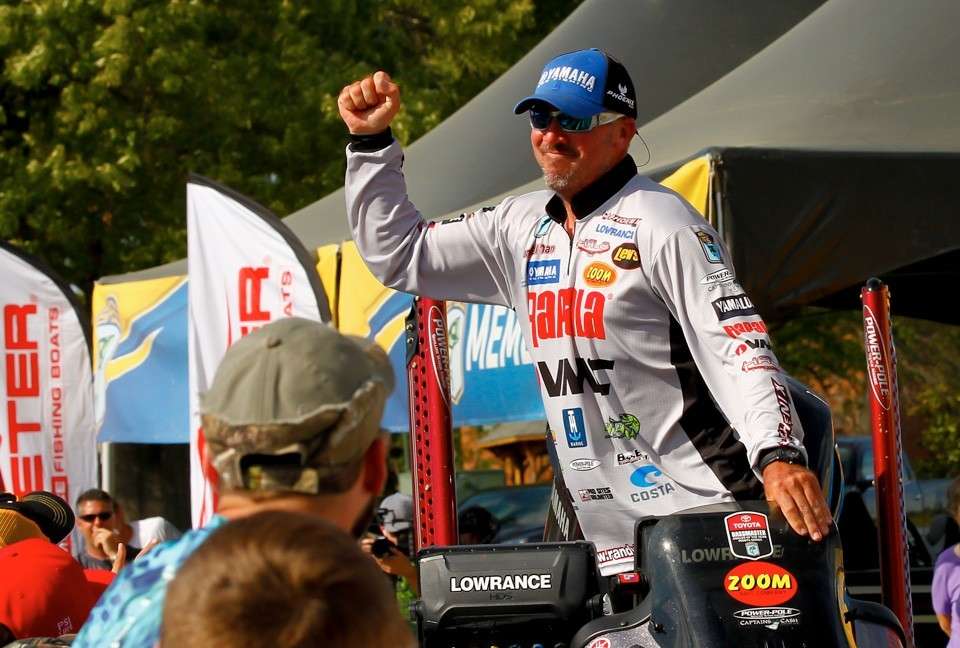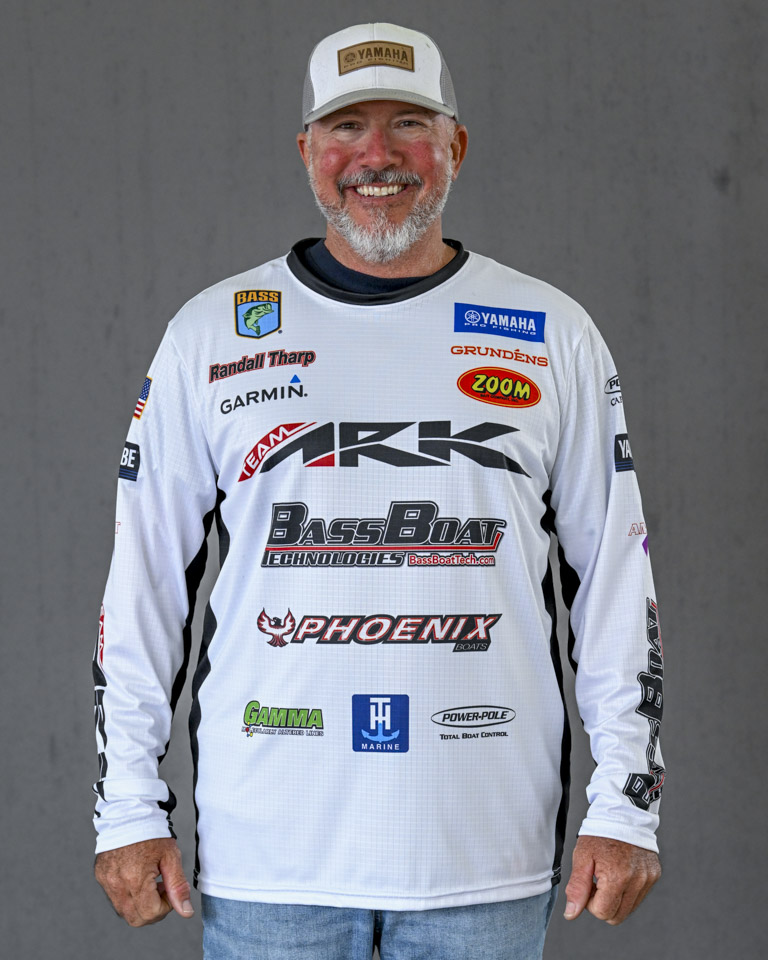
“Why do they call you the Honey Badger?”
Without a doubt, this is the most common question I get from fishing fans I meet at tournaments and sports shows across the country.
When Dave Mercer introduces me on stage at Bassmaster Elite events he says, “He’s the Honey Badger because he don’t care!”
But the reason, “because he don’t care,” is not quite enough of an explanation about my nickname. Fishing fans want to know more…
So, once and for all, here is how the Honey Badger nickname came about.
This story is pretty simple really. The whole honey badger thing happened because of a hilarious viral video that went around about five years ago. Google “honey badger video,” and it’s still the first thing comes up – it’s had something like 79 million views. Now, fair warning, the video does contain some R-rated language, but it is still one of the funniest viral videos ever created. In fact, Sara and I still watch it to this day and it still brings us to tears from laughter.
The video is basically a narrative of this crazy creature called a honey badger, “the most fearless animal of all animals,” and how it roams the desert constantly encountering extreme adversity while trying to survive.
Clean version:
Right about the time this video blew up on YouTube, I was right on the cusp of breaking out as a professional angler. I had won at the AAA level, but not at the national tour level. I had invested a lot of money in the best equipment. I had honed my mechanical skills. I spent thousands of hours on the water learning how to find fish. All the pieces of the puzzle were there, except one: overcoming adversity.
Here’s a fact, in professional bass fishing, nothing goes the way you plan on tournament day – something will always go wrong. Adversity will rear its ugly head in a multitude of ways: You’ll draw boat number 105 when you have a 10-pounder on a bed; there will be 15 boats on your starting spot; a big rain will blow out your best creek; 3-footers will wash out your best flat; you’ll spin a hub; you’ll step on your best flipping stick and snap it in half; your co-angler will catch a 7-pounder behind you. You name it, and it will happen and cost you winning a tournament.
One day I was having a discussion with freelance outdoor writer and photographer Rob Newell about the role of adversity in our sport. So many other sports are carried out in very controlled arenas – courses are crafted, fields are groomed, tracks are paved – but pro tournament fishing is carried out on vast public resources with so many more variables. And the greater the variables, the greater the opportunity for adversities.
At that point, Newell said, “You have to be the honey badger in the desert. You have to eat larva when the bees are stinging you, the jackals and birds are going to steal your scraps and if a king cobra bites you, then eat the cobra.”
I had no idea what in the world Newell was talking about. He told me to check out the honey badger video, and I bet I watched it no less than 30 times that first time, laughing until my stomach was in convulsions.
Instantly I got it. No matter what dire circumstance the honey badger found himself in, “the honey badger don’t care, he just takes what he wants,” and he leaves the scraps for the jackals and birds.
That one hilarious video, which lasts all of three minutes and 20 seconds, instantly put this whole sport in perspective for me. Yes, there are some rare days when everything goes your way, but mostly this sport is about dealing with a constant barrage of adversity. Stuff happens and there is absolutely nothing I can do about it except keep digging holes and climbing trees to catch my prey.
In time, that video became almost meditative for me. When things were going wrong or I would have a bad tournament day, I’d watch it a couple of times and pretty soon I’d be laughing again.
At some lakes, like Beaver Lake, I would have to “eat larva while getting stung by bees” just to survive and get a check. At other tournaments like Lake Okeechobee, I would “hunt cobras” to catch big ones.
One of the most priceless scenes in the video is when the honey badger is hard at work digging around in the ground for mice and a bunch of jackals and birds are standing around waiting to “swoop in and take the scraps.” Fishing on public resources is no different. Catch a big bass in a crowd of anglers, leave the area and others will swoop in for the scraps.
But above all, my favorite scene is when the honey badger is tangling with a king cobra. During the battle, the cobra bites the badger. The venom from the snake knocks the badger out, and it looks like he might be dead. But after a little nap, the badger pops right back up and eats the cobra! Now that’s how to deal with adversity. Just eat the cobra.
En route to my first FLW Tour win on Lake Okeechobee, I stuck a giant bass – a true cobra – and it came off right at the boat. Newell was there doing on the water reporting. He thought I was going to be upset by losing the tournament-winning fish, but instead I just laughed and started reciting lines from the video aloud: “The honey badger has been bitten by the cobra… the jackals and birds are now trying to swoop in for the scraps…but the honey badger, he don’t care. He is just going to take a little nap, shake off the venom and come back and eat the cobra.”
A little while later I caught another giant bass that sealed the win for me. When I got it in the boat, I said, “I just ate the cobra.”
And that’s when Newell officially named me the Honey Badger.

